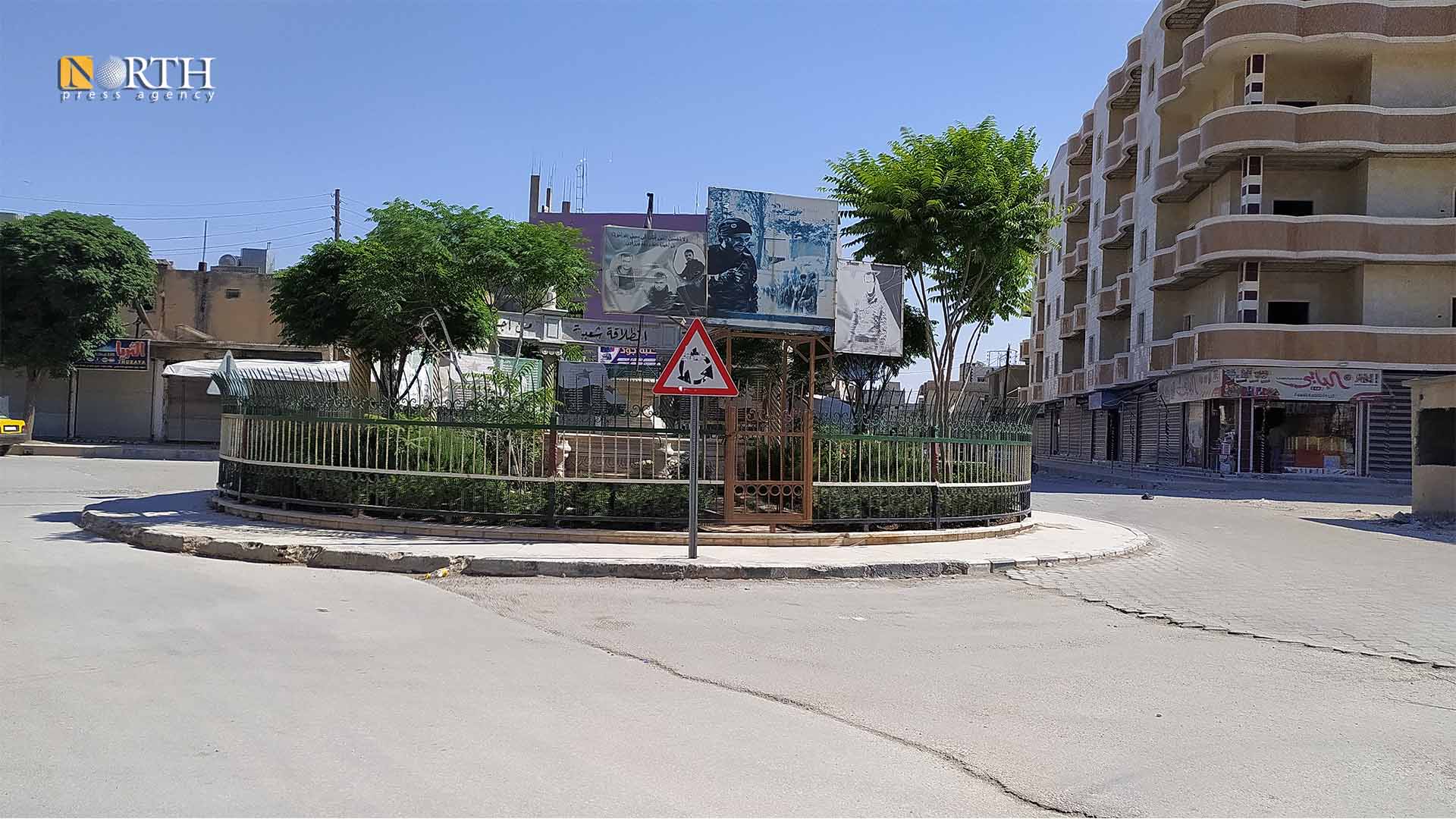JARABULUS, Syria (North Press) – Talal al-Diab (a pseudonym), an IDP from the city of Homs residing in Jarabulus city, east of Aleppo, northern Syria, shops for his family from the shops near his house despite their high cost, in order to avoid the crowds and gatherings in the markets.
Al-Diab tries to avoid visiting Jarabulus’ markets frequently out of fear of the repeated explosions of cars and IEDs, which have left a number of victims and carved swaths of destruction through the city.
In addition to explosions, the frequent tribal conflicts and the fighting between the opposition armed groups in the city “causes massive security chaos,” according to al-Diab.
Often, the explosions and the fighting occur in the crowded places like shops and vegetable markets.
Jarabulus, and other regions under the control of the Turkish forces and pro-Turkish armed groups, has been witnessing security chaos represented by the frequent occurrence of explosions in addition to assassinations, kidnappings and theft in light of the shared influence of armed groups regarding military and security tasks.
Since 2017, Jarabulus has been subjected to the rule of Turkish forces and their affiliated factions.
Jarabulus includes several security apparatuses, such as the military police, the civil police, the security and anti-drug apparatuses, some of which belong to the armed factions and others to the Turkish forces, in addition to the 9th Division, the Sultan Murad Division, Ahrar al-Sham and other factions.
Tribal character
On June 5, four IEDs exploded in a civilian car in the city, without any human losses reported.
Two IEDs exploded inside a van near the Military Police headquarters in the city and left only material damage, a local source told North Press.
Two additional IEDs also exploded half an hour after the first explosion; one in a taxi and the other near the city’s bank.
Earlier this month, a militant and a civilian were wounded by an IED explosion inside a military car near al-Hal market in the eastern part of the city.
On April 28, unidentified individuals assassinated two members of an armed group while they were shopping in the center of Jarabulus.
Jarabulus resident Zaher al-Ahmed (a pseudonym) said that “tribal character” dominates the city and its countryside, “which leads to direct and indirect clashes between the sons of those tribes and the indiscriminate use of weapons.
“This greatly affects the outbreak of tribal conflict among most of the city’s civilians, which may injure both parties to the conflict,” according to al-Ahmed.
Failure to control
Al-Ahmed said that the majority of the tribal disputes have devolved into infighting among the armed groups, “as each family of those tribes joined a faction representing it and protecting it in case a dispute occurred between it and another faction.”
On March 9, a man and his wife were killed by pistols when unidentified individuals entered their house under the pretext that they are from a humanitarian organization that provides medical equipment against coronavirus, according to a source.
On March 6, unidentified persons killed Musa al-Marei, the leader of Hamat al-Aqida Brigade, which is affiliated with the Third Corps of the Syrian National Army in Jarabulus.
Hisham al-Mansour (a pseudonym), a Military Police member in the city, said they cannot arrest the sons of the tribes, “as arresting any individual of the tribes will escalate the problem with his parents.”
On January 27, leader of the Sham Legion group Ahmed Ghannoum was killed when an IED placed in his car exploded on the river road in Jarabulus.
Al-Mansour did not deny their inability to control the state of security chaos. “Although we search all the cars entering the city, there is a weakness in detecting the locations of the IEDs and there is no serious security control.”

